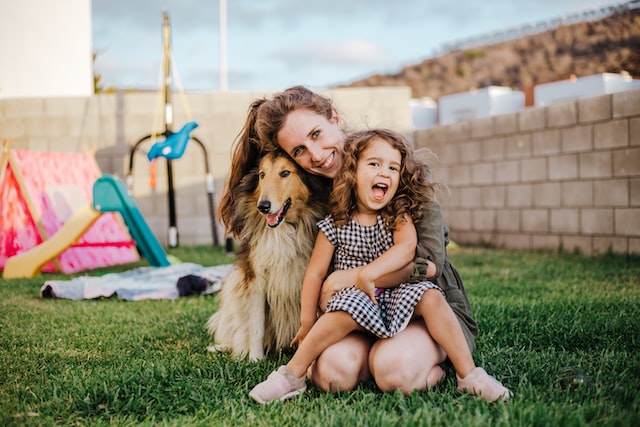It’s no secret that getting a dog offers numerous benefits for families. For example, they provide excellent companionship to young and old family members alike; they can alert you to people approaching your home, and they are very loyal and loving.
If you’ve had canine companions in the past and grew up with dogs in your family home, this article probably isn’t for you. However, if you’ve never had a dog before and you’re keen to introduce one into your home, it’s important to arm yourself with plenty of knowledge before giving a pooch a forever home.
You’ll find a raft of helpful articles online about owning a dog. But what most of them won’t tell you is that puppies are like newborn babies! That said, it don’t let it put you off getting a dog – just make sure you’re well prepared. Thankfully, the following six points illustrate what people won’t usually tell you about introducing a new pet dog into your home:
1. Training Never Stops
First of all, if people tell you dogs will only be well-behaved if they have training as puppies, think again. Adult dogs might associate certain words or movements with specific actions from training as puppies, but that doesn’t mean they will always be 100% obedient! You’ll soon learn that training never stops when you introduce a dog to your home. In some ways, they may even cause you to rethink certain things you do each day.
2. You Need To Groom Your Dog Regularly
It doesn’t matter whether you have a short or long-haired dog. One thing you will soon discover about your new family’s canine companion is how your dog will always need grooming. Sure, some breeds like Bedlington Terriers may require more grooming than others, but they aren’t self-grooming animals like cats, for instance.
With that in mind, you’ll need to invest in everything from dog grooming scissors to brushes, shampoos, nail clippers, dental care items like toothbrushes and toothpaste, and more!
3. Some Dogs Hate Being Left Alone
Dogs are social animals and thrive when they are part of a pack. If you keep a dog isolated from contact with the outside world, they will understandably get upset, and that anxiety typically manifests itself with howling, barking, and pining.
Some dogs are better than others at being left alone for long periods, so you should research which breeds are best for your lifestyle and work commitments. The last thing you want is for your new family dog to feel unhappy most of the time because no one is there to engage with them.
4. Some Breeds Cost More Than Others
One thing you will have noticed is that the cost to bring a dog into your family’s lives can vary. For example, if you adopt a dog from an animal rescue shelter, there will usually be a fixed fee of approximately £150. But, if you decide to buy from a breeder, you could end up paying thousands for a purebred dog. The costs don’t stop there, of course. You’ll need to consider ongoing costs like veterinarian fees, food, toys and accessories.
5. Your Dog Might Not Get On With Other Animals
Do you already have a pet in your life, such as a cat or a budgie? If so, you should satisfy yourself that your new canine companion will get on with any existing animals in your household. The sad truth is that some dogs struggle to integrate themselves into a new environment, and due to their anxiety, they could end up barking at and biting other animals or even humans. Ask if you can foster the dog you’re thinking of getting and then agree to adopt them if all goes well.
6. They Are Good Communicators
As you know, dogs don’t express themselves in the same ways as humans. It would be amazing if you could have voice conversations with your family dog, but the truth is you’ll find such chats a one-sided affair!
Still, that doesn’t mean your dog can’t communicate with you in other ways! Once your new family pet has adjusted to life in their new forever home, you’ll soon notice they do certain things to tell you what they want. For example, you may notice that your dog nudges your hand when they want you to stroke them or give them attention, or they might run to your back door and wait, looking back at you, to let you know they want to go outside.
At the end of the day, the more you inform yourself, the better prepared you’ll be when you welcome your new family member.
